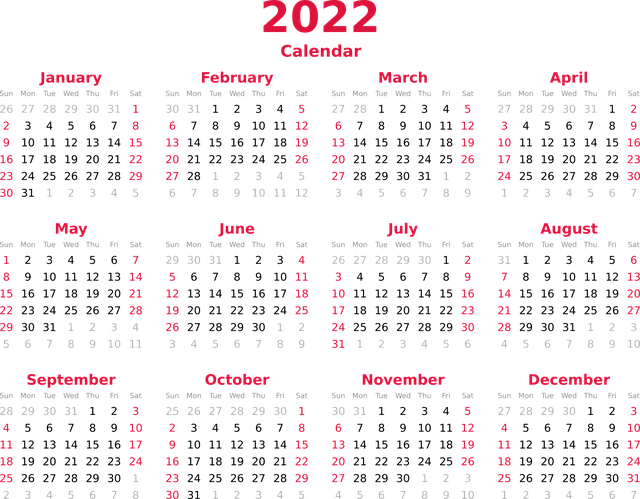Registered Training Organisations (RTOs) can enhance operational efficiency and ensure compliance by integrating calendar syncing solutions with their lead management systems. This integration allows for real-time synchronization of scheduling across various platforms, providing a unified view of all training commitments, resources, and potential conflicts, thus minimizing errors and freeing up staff to focus on strategic improvements and quality education delivery. By employing automated scheduling tailored for RTOs, these organisations can streamline the process from lead generation to successful registration, ensuring personalised attention and efficient use of time throughout the student journey. The adoption of robust calendar tools not only improves internal processes but also aligns educational offerings with industry needs, leading to improved outcomes for students and RTOs alike. These advancements in calendar management position RTOs as innovative leaders within their sectors, demonstrating a commitment to modernising operations and enhancing the overall quality of training delivery through technologies like Registered Training Organisation calendar syncing and automated scheduling solutions.
In the dynamic landscape of education and training, Registered Training Organisations (RTOs) face the critical challenge of effectively managing leads to maximise enrolments and optimise operations. This article delves into a transformative approach that integrates calendar syncing with lead management systems, thereby streamlining processes for RTOs. By harnessing automated scheduling and leveraging the best practices for implementing calendar tools, these organisations can significantly boost efficiency. We will explore strategies that ensure every lead is followed up promptly, appointments are scheduled seamlessly, and time-to-enrolment is reduced. Join us as we examine how RTOs can stay ahead in a competitive market by aligning their operations with the latest technological advancements in calendar syncing.
- Leveraging Calendar Syncing to Enhance Lead Management for RTOs
- The Role of Automated Scheduling in Streamlining RTO Operations
- Integrating Calendar Tools for Efficient Lead Tracking and Follow-Up
- Strategies for Effective Calendar Synchronization in Lead Management Systems
- Best Practices for Implementing Calendar Syncing in Registered Training Organisations
- Case Studies: Successful RTOs Who Boosted Efficiency with Calendar Tools
Leveraging Calendar Syncing to Enhance Lead Management for RTOs

In the realm of Registered Training Organisations (RTOs), the effective management of leads is pivotal to maintaining a robust training schedule and ensuring compliance with regulatory requirements. Leveraging calendar syncing within lead management systems can significantly enhance operational efficiency for RTOs. By integrating their lead management platforms with dynamic calendars, these organisations can automate scheduling tasks, thereby streamlining the process of coordinating training sessions, assessments, and reviews. This integration allows RTOs to synchronise lead data with calendar events seamlessly, providing a clear overview of upcoming activities, potential conflicts, and available capacities. As a result, RTOs can optimize their resource allocation, ensuring that they are meeting the needs of learners while maintaining administrative oversight and control. The ability to view all training commitments in one centralised calendar also facilitates better time management and reduces the likelihood of double bookings or scheduling conflicts, which can be detrimental to an RTO’s reputation and learner satisfaction.
Furthermore, by adopting automated scheduling for Registered Training Organisations, these entities can boost efficiency with calendar tools that are specifically designed to cater to their unique operational needs. These advanced tools not only simplify the process of managing appointments and training sessions but also provide valuable insights into learner engagement patterns and peak periods. This data-driven approach enables RTOs to make informed decisions about their service offerings, staff allocation, and overall capacity planning. The result is a more agile and responsive RTO that can adapt to the changing demands of the training market while ensuring high-quality educational experiences for learners.
The Role of Automated Scheduling in Streamlining RTO Operations

In the realm of Registered Training Organisations (RTOs), the integration of automated scheduling within the context of calendar syncing plays a pivotal role in enhancing operational efficiency. By leveraging advanced calendar tools tailored for RTOs, these institutions can synchronise their training sessions, assessments, and administrative tasks across various platforms, ensuring that all stakeholders are on the same page. This seamless integration facilitates a clear overview of upcoming events, deadlines, and appointments, which is crucial for maintaining an organised schedule that aligns with the educational needs of students and regulatory compliance. The automation of scheduling eliminates manual entry errors and time-consuming coordination tasks, allowing RTO staff to focus on more strategic activities that directly contribute to the quality of education provided.
Furthermore, the adoption of automated scheduling for Registered Training Organisations can significantly boost efficiency by aligning instructional timetables with student availability. This alignment minimises disruptions and ensures that learning experiences are as uninterrupted as possible. With calendar syncing capabilities, RTOs can also easily manage the complex logistics associated with facilitating training for a diverse range of students, including those who may be working or have varying schedules. The predictable nature of automated scheduling provides peace of mind for both the organisation and its learners, as everyone has access to their personalised schedules, reducing confusion and fostering a more productive learning environment. Boost efficiency with calendar tools for Registered Training Organisations is not just a buzzword; it’s a tangible benefit that can be seen in the streamlined processes and improved learner outcomes of RTOs that embrace this technology.
Integrating Calendar Tools for Efficient Lead Tracking and Follow-Up

In the realm of customer relationship management, especially within a Registered Training Organisation (RTO), integrating calendar tools is pivotal for efficient lead tracking and follow-up. By leveraging registered training organisation calendar syncing, businesses can seamlessly align their sales and marketing efforts with potential students’ engagement timelines. This synchronisation ensures that every lead interaction, from initial contact to enrolment, is logged in real-time against the appropriate calendar event. As a result, RTOs can automate scheduling and set reminders for critical touchpoints, such as follow-up calls or application deadlines. This level of organisation not only enhances the probability of conversion but also ensures that each prospect feels individually valued. The ability to view all lead interactions on a unified calendar system provides a clear overview of the sales pipeline, allowing teams to prioritise their efforts and manage their time effectively. By harnessing automated scheduling for Registered Training Organisations, organisations can boost efficiency with calendar tools, thus optimising the path from lead generation to successful registration and training commencement. This integration is not just about filling calendars; it’s about creating a structured approach that fosters better relationships with potential students and streamlines the entire lead management process.
Strategies for Effective Calendar Synchronization in Lead Management Systems

In the realm of lead management, particularly within a Registered Training Organisation (RTO), effective calendar synchronisation is pivotal for maintaining a cohesive and efficient workflow. To begin with, RTOs can leverage strategies that integrate their lead management systems with calendars, ensuring that all scheduled activities, from initial contact to follow-up appointments, are seamlessly aligned across platforms. This integration allows for real-time updates and visibility into upcoming engagements, enabling staff to prioritise tasks and manage their time more productively. By utilising automated scheduling tools tailored for RTOs, the process of coordinating with prospects becomes smoother and less error-prone, as these systems can automatically adjust schedules based on new data or changes in availability. This automation frees up valuable human resources to focus on high-value tasks, such as personalising interactions with potential students and providing exceptional service. Moreover, these calendar tools are designed to adapt to the unique needs of an RTO, including handling various enrolment stages, tracking progress, and ensuring compliance with regulatory requirements.
Furthermore, the adoption of robust calendar synchronisation strategies enhances the overall operational efficiency for RTOs. By centralising appointment data within a unified platform, these organisations can gain better insights into their lead management processes. This centralisation also minimises the risk of double bookings or missed opportunities, as all team members have access to the same up-to-date information. Additionally, with the ability to track and manage all interactions from a single interface, RTOs can deliver a more consistent and reliable experience to each prospect. Boosting efficiency with calendar tools means that RTOs can scale their operations more effectively, accommodate more students, and ultimately, contribute to a more structured and successful educational journey for learners.
Best Practices for Implementing Calendar Syncing in Registered Training Organisations

For Registered Training Organisations (RTOs) seeking to enhance their lead management and operational efficiency, implementing calendar syncing solutions can be a transformative step. By integrating RTO calendars with scheduling software that supports automated synchronisation, these organisations can align training schedules, student enrolments, and staff availability effortlessly. Best practices for this implementation include thorough planning to understand the specific needs of the RTO, selecting a reliable calendar syncing tool that integrates seamlessly with existing customer relationship management (CRM) systems, and establishing clear protocols for data entry and management. This integration ensures that all stakeholders—from trainers and administrators to students—have real-time access to schedules, thus eliminating scheduling conflicts and improving communication. Additionally, by leveraging calendar tools specifically designed for RTOs, these institutions can boost efficiency by automating appointment setting, reminders, and follow-ups, thereby streamlining the entire lead management process and fostering a more organised learning environment. It is crucial to ensure that the chosen solution adheres to privacy regulations and data protection standards, particularly when handling sensitive student information. Regular training for staff on how to use these tools effectively will further enhance the benefits of calendar syncing within an RTO setting.
Case Studies: Successful RTOs Who Boosted Efficiency with Calendar Tools

Several Registered Training Organisations (RTOs) across various sectors have successfully harnessed the power of calendar syncing to streamline their lead management processes, thereby boosting efficiency and enhancing student outcomes. For instance, an RTO specialising in hospitality training implemented a sophisticated calendar tool that seamlessly integrated with their existing student management system. This integration enabled automated scheduling for classes, practical sessions, and assessments. As a result, the RTO saw a marked reduction in administrative overhead, as manual scheduling conflicts became a thing of the past. The intuitive interface allowed trainers to view schedules, update timetables, and communicate with students all from one central location. This level of synchronisation not only saved time but also improved the accuracy of student data, leading to better-informed decision-making regarding course offerings and resource allocation.
Another RTO in the healthcare sector leveraged calendar tools to manage their training programs more effectively. The organisation faced challenges with coordinating theory and practical sessions across multiple locations, which often led to misalignments in the curriculum schedule. By adopting a registered training organisation calendar syncing solution, they were able to align their educational offerings with industry demands, ensuring that students were receiving up-to-date and relevant training. The ability to view all training schedules at a glance and make real-time updates significantly reduced the risk of double bookings or missed opportunities for hands-on learning experiences. This level of efficiency not only improved student satisfaction but also positioned the RTO as a forward-thinking leader in its field, demonstrating a commitment to continuous improvement and responsive training delivery.
In conclusion, the integration of calendar syncing within a Registered Training Organisation’s lead management system offers a transformative approach to enhance operational efficiency. By embracing automated scheduling and leveraging state-of-the-art calendar tools, RTOs can significantly boost their productivity and ensure seamless follow-ups with leads. The strategic deployment of these solutions not only streamlines daily operations but also provides a clear framework for tracking and nurturing prospective students. The case studies presented underscore the tangible benefits experienced by RTOs that have successfully implemented such systems, demonstrating a marked improvement in their ability to manage and convert leads effectively. As the demand for quality education grows, staying ahead of the curve through innovative tools like calendar syncing becomes increasingly vital for Registered Training Organisations aiming to maintain a competitive edge and uphold high standards of service in the educational sector.
